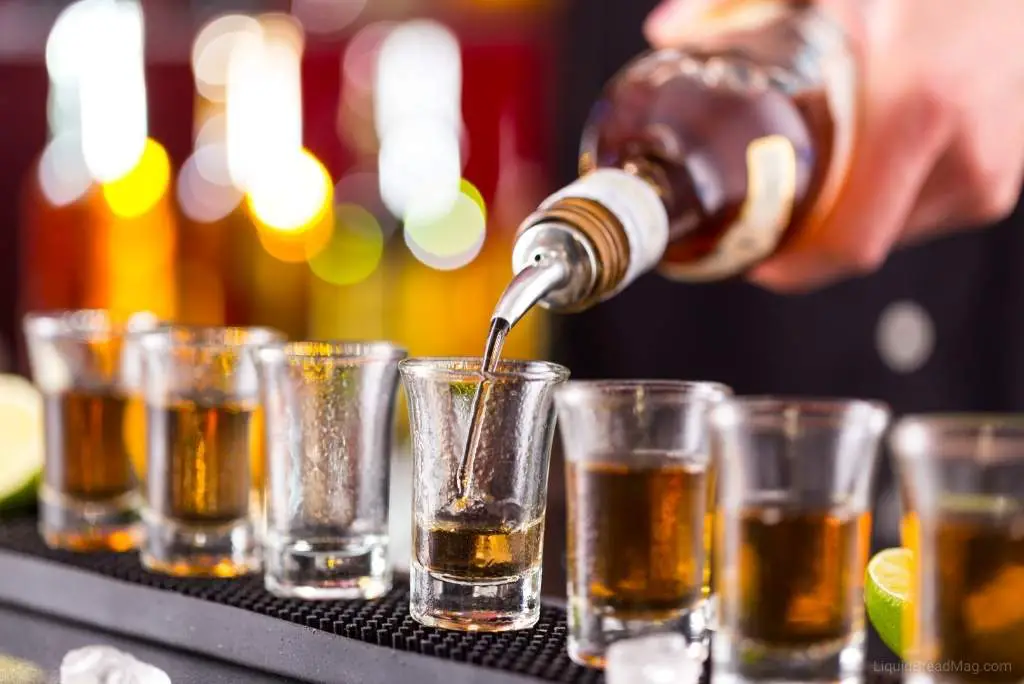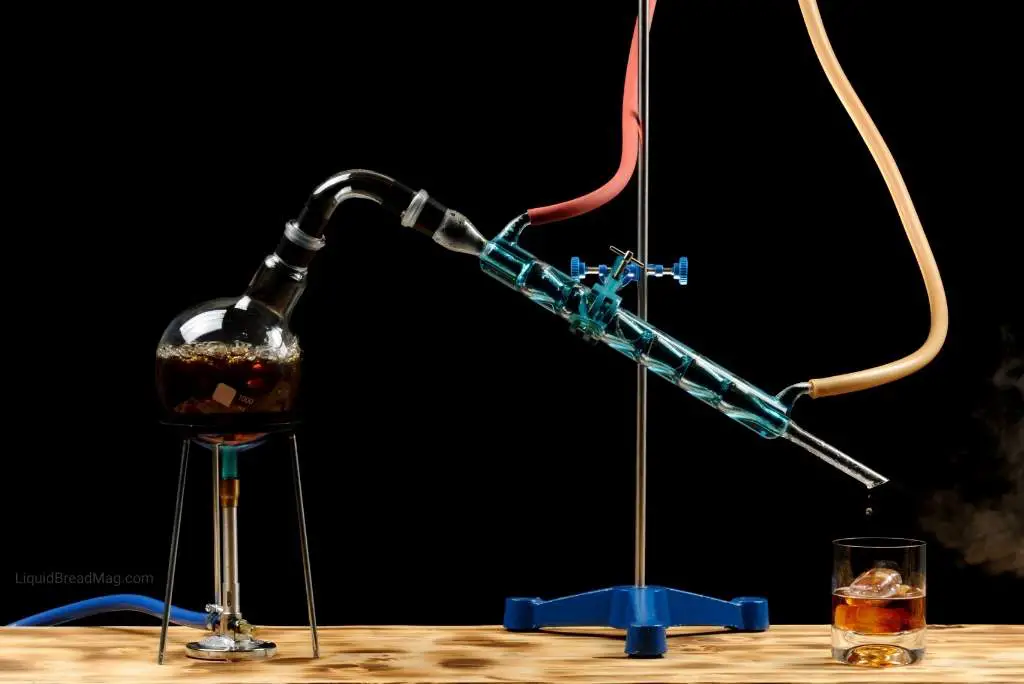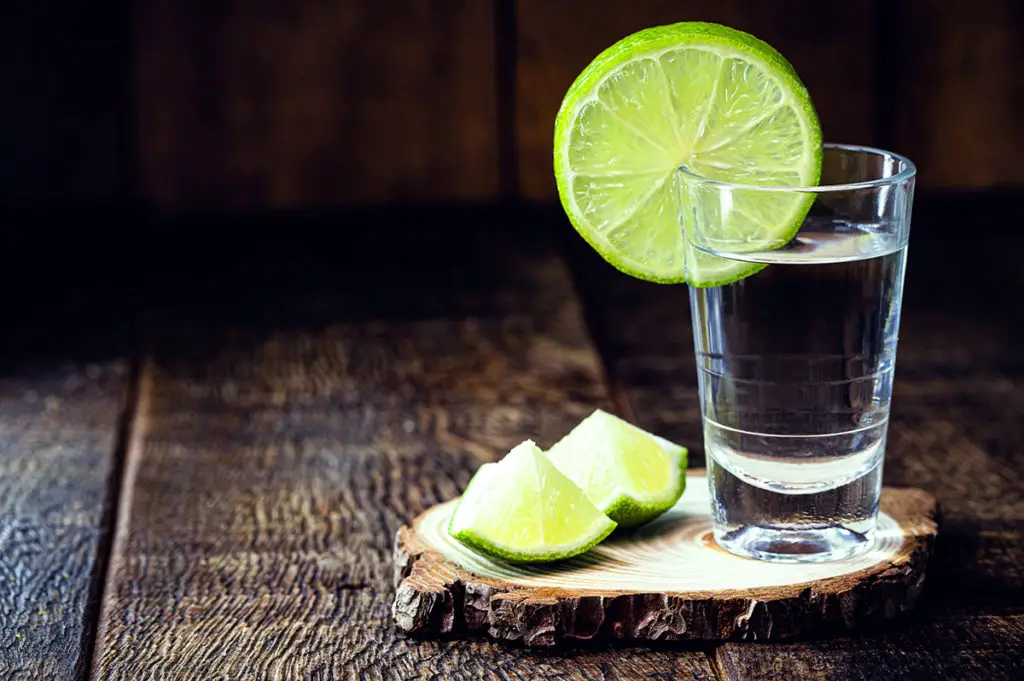Spirits are typically distilled, sugar-free beverages with at least 20% alcohol content, such as gin, vodka, bourbon or tequila, but how did they get this collective name? Some people believe that it’s an allusion to the Bible, which compares the effect of alcohol to the impact of the Holy Spirit. But is there another explanation?
Some alcohol is called ‘spirits’ because some thought this type of drink was akin to the spirit of a liquid. During the distilling process, the vapors would rise, like spirits, hence the name. It could also refer to the Arabic words al-ghawl and al-koh’l, two possible origins for the word alcohol.
This article will look at each possible reason some alcohols are known as spirits, including Bible references and ancient Egyptian alchemy. I’ll also explain the difference between alcohol and spirits.
The Word “Spirit” Refers to the Origin of the Word “Alcohol”
As mentioned above, there are two possible origin words for the word alcohol, both Arabic: al-ghawl and al-koh’l. Each of these is a possible reason for using the word “spirit” to refer to alcohol.

Shaker & Spoon - We bring the bar to you! It's the perfect home happy hour🍸→ Get Your Drink Box
Al-Ghawl Refers to a Demon in the Quran
Al-ghawl is a word used in the Quran – specifically, in verse 37:47. This verse refers to a demon (or spirit) that causes people to become intoxicated.
The link between this reference and alcohol is pretty apparent – just like the al-ghawl causes intoxication, so does alcohol.
However, it should be noted that al-ghawl is the less commonly accepted source of the word “alcohol.” The more widely accepted one – and the one supported by Merriam-Webster – is that the word comes from al-koh’l.
Al-Koh’l Refers to Eyeliner Which Was Made Using a Process Similar to Distillation
Al-koh’l was the word for an eyeliner made by grinding several carbon compounds, including:
- Galena
- Cerussite
- Laurionite
- Phosgenite
- Possibly stibnite and malachite
This substance was first produced using sublimation and, later on, distillation, which was also used to make alcohol. It should be noted that the process of sublimation is relatively similar to that of distillation.
Additionally, some theorists suggest that, for a period, the word al-koh’l referred to any substances made via distillation. The processes of distillation and sublimation were thought to release the “spirit” of the substance produced – so, because alcohol was made using distillation, it was also referred to as “spirit.”
Furthermore, modern science has shown that al-koh’l acted as a protective toxin in Ancient Egypt. When used on the eyes, it could kill infections that entered the body through the eyes, which were common during the flooding of the Nile.
Because al-koh’l acted as a protective substance, it may have been linked to protective spirits – a connection that transferred over to alcohol when the word changed meanings.
“Spirit” Is a Reference to the Bible
The Bible frequently conflates imagery of the Holy Spirit with that of wine, alcohol, or drunkenness.
Acts 2: Filled With The Holy Spirit…of Intoxication!?
For example, in Acts 2, the Bible talks about Jesus’s disciples being “filled with the Holy Spirit” on the first Pentecost. The effects of the Holy Spirit seem to be relatively similar to that of intoxication.
For example, the disciples start “to speak in other tongues,” which may resemble the effects of drunkenness for some people.
In fact, the effects of the Holy Spirit resembled being intoxicated so much that bystanders specifically said, “They have had too much wine.”
Ephesians 5:18: Holy Spirity Rather Than Drunkenness
Additionally, in Ephesians 5:18, Saint Paul explicitly compares the effects of wine and the Holy Spirit, saying that people should choose to “be filled with the Spirit” rather than getting drunk.
It should be noted that the word “spirit” only refers to distilled liquors, a category of alcohol that does not include wine. And the Bible draws comparisons between the Holy Spirit and wine, not a distilled liquor.
That said, there is a good chance that this link between the Holy Spirit and wine did help solidify the connection between the word “spirit” and alcohol in general. This, in turn, may have led to liquors being referred to as “spirits.”
The Word “Spirit” May Be a Reference to Alchemy
There is some confusion about where the process of distillation was first invented. However, Aristotle is believed to have mentioned it, and there is some archaeological evidence suggesting that the process of distillation was known in China during the Han Dynasty.

However, the most commonly accepted origin of distillation can be traced to the Middle East. This is because the distillation apparatus found in this region is somewhat similar to the instruments you’ll see in a high-school science laboratory.
The first accurate illustrations of the distillation process with this equipment can be traced to an Egyptian alchemist and are, once again, somewhat similar to what you would expect to see during a high-school distillation experiment.
Alchemists Often Used Distillation Techniques
Just as the origin of distillation can be traced to alchemy, so can its uses.
Today, alchemy is best known for its search to find a way to transform lead into gold and find the elixir of life, which either made the drinker immortal, granted eternal youth, or cured all diseases.
However, alchemists worked on several other theories and elixirs, and some of their laboratory techniques and ideas are still used today. In fact, alchemy can be said to be a forebear of both chemistry and medical science.
In their search to perfect various medical elixirs, alchemists extensively used distillation. This process would involve purifying a liquid through distillation and collecting the resulting vapor.
This vapor was regarded as the essence, or the “spirit,” of the original liquid. It would then be condensed back into a liquid, which would be the purest form of the original solution.
This process is relatively similar to how the distillation process used to produce various liquors works. The first use of distillation in the manufacture of alcohol involved distilling wine into more potent alcohol.
Therefore, the process of distillation was thought to have purified the wine, similar to how distillation allowed alchemists to purify their elixirs. And just as distillation allowed alchemists to create the “spirit” of the liquid they started their experiment with, distillation allowed people to produce the “spirit” of alcohol.
Difference Between Spirits and Alcohol
As mentioned above, only some alcohols are known as “spirits.” The natural question that arises from this fact is why? Why are only some alcohols known as spirits, and what differentiates spirits from alcohol in general?
 Tequila is considered a Spirit.” class=”wp-image-1316″/>
Tequila is considered a Spirit.” class=”wp-image-1316″/>Spirits Are Also Known As Hard Alcohols
Spirits is another way to refer to liquor. These alcohols are also called “hard alcohol” or “hard liquor” and include vodka, absinthe, tequila, rum, whisky, and gin.
Liquor, or spirits, are essentially alcohols with the highest alcohol by volume (ABV), ranging from 20% ABV to as much as 90% ABV. This high alcohol content is achieved by distillation, which means that all liquors undergo distillation.
This separates spirits from other alcohol in general because, while all alcohol undergoes fermentation (usually with the help of yeast), only liquors/spirits undergo distillation.
In the United States, liquors sold commercially must include specific information on the bottle label, including:
- The type of spirit (tequila, rum, etc.)
- The name of the alcohol brand
- If it’s a whiskey that is under four years old, this information must be included on the label.
- ABV (either as a percentage or as “Proof”)
- Country of origin. If the country of origin is not the United States, the importer’s name must be included.
- Generic warning about the danger of alcohol
Not All Alcohol is For Drinks
Non-liquor alcohols include wine, beer, bitters, and schnapps. These drinks are typically fermented, which is the first step in making alcohol. A liquid can then be distilled to separate the alcohol, making spirits.
For example, you can ferment grapes to create wine, which can then be distilled to create brandy.
But it should be noted that not all alcohols are alcoholic beverages. The word “alcohol” also includes alcoholic liquids used for other reasons, including for medical and industrial reasons.
Final Thoughts
There are three primary reasons that some alcohols are referred to as spirits. These include:
- The origin of the word “alcohol.”
- References to alcohol in the Bible.
- A reference to the intersection of the history of distillation with alchemy.
Remember that only liquors are called spirits, and these alcoholic beverages are always made via distillation.
In contrast, “alcohol” is a generic term for a category of liquids that are produced via fermentation. The term alcoholic liquids may refer to recreational beverages. However, it may also refer to liquids used for medical and industrial reasons.
